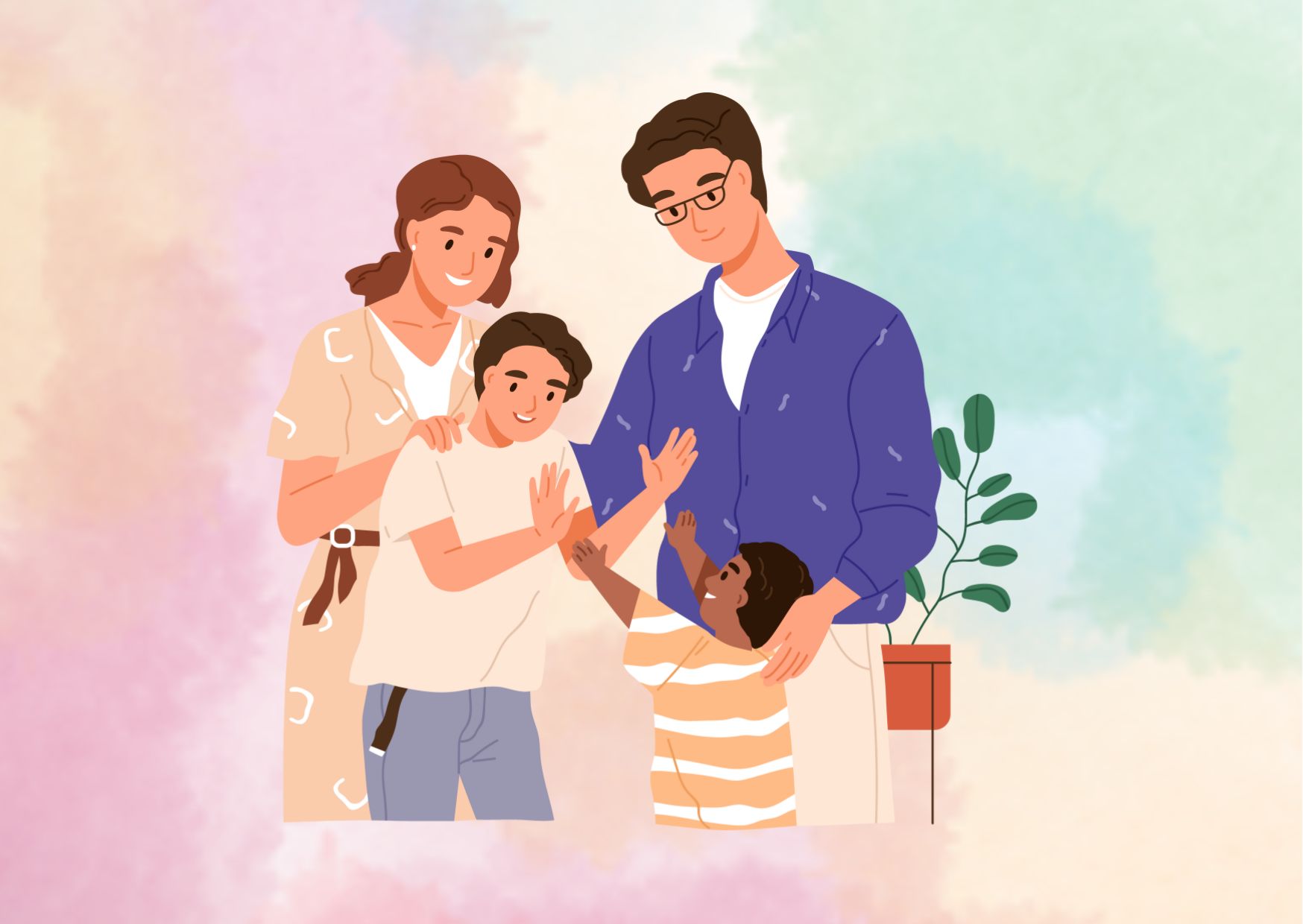Understanding Adopted Children Psychological Problems
Adoption can be a profoundly positive experience, providing children with loving homes and families. However, it’s crucial to recognize that adopted children may face unique psychological challenges stemming from their preadoptive experiences and the adoption process itself. Many adopted children, especially those from foster care or institutional settings, have endured trauma, neglect, or abuse before being placed with their adoptive families. This early adversity can manifest in various behavioral and emotional issues, including attachment disorders, aggression, depression, and anxiety.
Navigating the complexities of adoption and addressing an adopted child’s psychological needs requires a deep understanding of the potential issues they may face. This article delves into the risk factors for mental health problems in adopted children, the impact of preadoptive experiences, the role of the adoptive family, common trajectories of emotional and behavioral challenges, and strategies for promoting positive outcomes. By exploring these topics, we aim to equip adoptive parents, professionals, and the broader community with the knowledge and tools to support adopted children’s well-being and facilitate their successful integration into their new families and environments.
Adopted Children’s Risk for Mental Health Issues
Adopted children face a heightened risk for various mental health issues compared to their non-adopted counterparts. This vulnerability stems from a combination of factors, including preadoptive experiences, genetic predispositions, and the inherent challenges of the adoption process itself.
Prevalence of Mental Health Disorders
Numerous studies have consistently demonstrated that adopted adolescents exhibit higher levels of behavioral and emotional problems than their non-adopted peers. These challenges often manifest as externalizing behaviors, such as attention deficit hyperactivity disorder (ADHD), oppositional defiant disorder (ODD), and conduct disorder (CD). Internalizing disorders like major depressive disorder (MDD) and social anxiety disorder (SAD) are also more prevalent among adopted individuals.
While the majority of adopted children are well-adjusted, a significant portion may be at elevated risk for clinically significant mental health issues. For instance, the odds of being diagnosed with ADHD and ODD are approximately twice as high in adoptees compared to non-adoptees. Additionally, adopted individuals are more likely to seek professional help for their psychological concerns.
Factors Contributing to Mental Health Risks
- Preadoptive Experiences: Many adopted children, particularly those from foster care or institutional settings, have endured trauma, neglect, or abuse before being placed with their adoptive families. These early adverse experiences can have lasting impacts on their emotional and behavioral development, increasing the risk for attachment disorders, aggression, depression, and anxiety.
- Genetic Predispositions: Biological factors may also play a role in the mental health vulnerabilities of adopted individuals. Mental health issues prevalent in birth parents, such as bipolar disorder, depression, or substance abuse disorders, can be genetically transmitted to their offspring, contributing to an increased risk for similar conditions in adopted children.
- Adoption-Related Trauma: The adoption process itself can be a traumatic experience for children, as it involves separation from their birth family and adjustment to a new environment. This transition can disrupt attachment patterns and lead to emotional and behavioral challenges, particularly for those adopted at older ages.
- Intergenerational Transmission of Attachment Issues: Some researchers suggest that attachment insecurity experienced by birth parents may be passed down to adopted children through epigenetic mechanisms, further compounding the risk for attachment-related disorders.
It is crucial to recognize that while adopted children may face elevated risks for mental health issues, their experiences are diverse, and many thrive in their adoptive families with appropriate support and interventions.
Impact of Preadoptive Experiences
Adopted children’s preadoptive experiences can have a profound impact on their psychological well-being and development. These experiences often involve adversities such as abuse, neglect, and exposure to traumatic events, which can leave lasting effects on a child’s emotional and behavioral functioning.
Age at Adoption
The age at which a child is adopted is often considered a proxy for the duration of their institutional or adverse experiences. Research findings on the impact of age at adoption on later outcomes have been inconsistent. While some studies suggest that later-adopted children exhibit higher rates of problems compared to those adopted earlier, others find no significant effect of age at adoption.
This inconsistency may be attributed to factors such as the severity of deprivation, the specific outcome domains assessed, or the age at which the assessment is conducted. However, it is generally accepted that children adopted at later ages are more likely to have accumulated a greater number of preadoptive risk factors, increasing their vulnerability to emotional and behavioral challenges.
Adverse Childhood Experiences (ACEs)
Adverse Childhood Experiences (ACEs) refer to a cluster of traumatic events that a child may encounter before being adopted, such as abuse (emotional, physical, or sexual), neglect, and household dysfunction (domestic violence, parental substance abuse, mental illness, or incarceration). These experiences can have a cumulative impact on a child’s development and well-being.
Research has shown that adopted children often experience a higher number of ACEs compared to their non-adopted peers. Nearly half of the children in a study on a national sample of adopted children in the UK had experienced four or more ACEs. The number of ACEs was found to be associated with higher levels of internalizing symptoms (e.g., anxiety, depression) and externalizing problems (e.g., aggression, conduct issues) in these children.
Time Spent in Foster Care
The duration of time a child spends in foster care or institutional settings before being adopted can also contribute to their risk for psychological problems. Children who remain in the care of their birth family for longer periods are more likely to have experienced prolonged exposure to adverse experiences, such as abuse, neglect, or household dysfunction.

